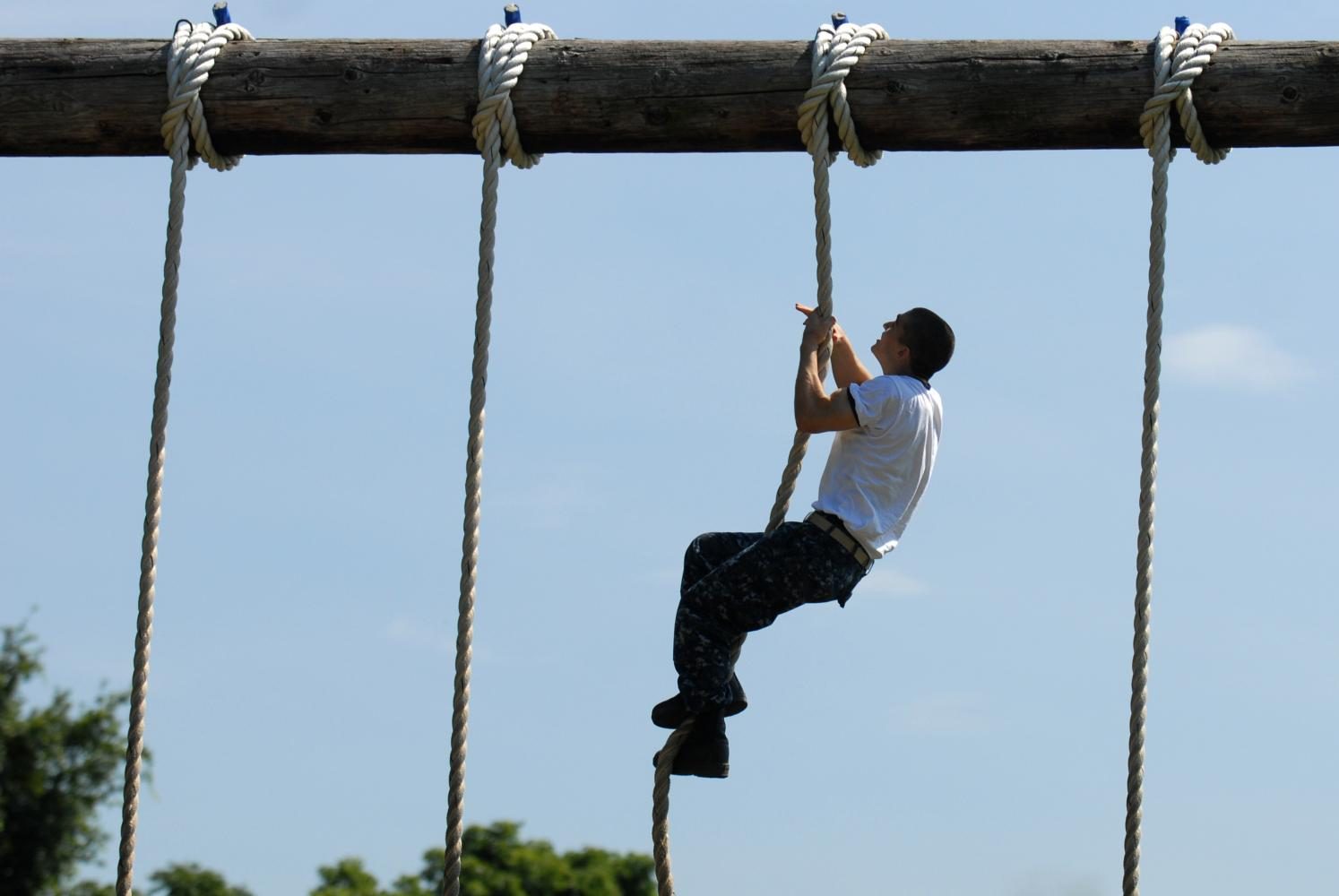Naval Academy Misfires On Sexual Assault: Commentary
A midshipman accused three academy football players of raping raped her when she was intoxicated at a party. Since then, the case has become an example of how poorly the military deals with sexual assault.
For five days during the trial, the alleged victim was subjected to exhausting interrogation on the stand. Defense attorneys probed her for details on how she performed oral sex, her previous sexual history and if she “felt like a ho” afterwards.
How are these invasive and irrelevant questions allowed in a civil trail? The answer: they’re not. This hearing was not a civil trial but an “Article 32 trial”:http://www.usmilitarylawyer.com/military-article-32-investigations.asp, a proceeding reserved for those in the Armed Forces. The rules in these preliminary hearings vary greatly from those in civilian courts, and these differences can be detrimental to sexual abuse victims.
These questions would not have been permitted in a civil trial because of rape shield laws, which prohibit asking about an alleged victim’s sexual history. Civil courts also set time limits on examinations of witnesses, but in Article 32 hearings, this interrogation can go on for days.
After suffering through over 20 hours of intensive examination, the midshipmen was almost not allowed to take a day’s break from the rigorous trial, because “a defense attorney”:http://www.baltimoresun.com/news/maryland/anne-arundel/annapolis/bs-md-navy-rape-trial-20130901,0,2319978.story did not understand what was so strenuous about “sitting in a chair.”
With the preliminary trial over, a superintendent will decide if this case should be dismissed or pursued further. The superintendent who makes the decision did not attend the proceedings. Susan Burke, the lawyer of the alleged victim, “noted this inconsistency”:http://www.nytimes.com/2013/09/21/us/intrusive-grilling-in-rape-case-raises-alarm-on-military-hearings.html?pagewanted=all&_r=1&. “ [Alleged victims] are forced to go through this [hearing], but the decision maker is not in the room,” she said.
Having the superintendent make this decision at all is an issue. In a civilian trial, jurors decide the verdict of the case. However, in the military, the commanding officers make the decision. Since the officers are the same officers who give orders and hold authority over the alleged victims, they are already biased to the situation. They are wary about causing scandals.
Clearly, the Naval Academy needs to do something about sexual assault in its ranks. What are officials doing? They want to prevent “midshipmen from living and partying off-campus”:http://www.nbcwashington.com/news/local/Calls-for-Accountability-Surround-Navy-Sex-Case-225046262.html, instead of addressing the real problem—attitudes towards sexual assault and treatment of alleged victims. They need to start holding the leaders who are making these decisions responsible.
Even if the military is not holding its leaders accountable, the midshipman from this case is. She is “suing the academy and the superintendent”:http://usnews.nbcnews.com/_news/2013/09/05/20343216-navy-midshipman-rape-accuser-sues-the-academy-superintendent?lite, saying the ridiculous questioning was a tactic to make her regret taking this case to court. She also argues that the Academy’s environment does not encourage victims to report abuse. She is right—of the estimated 26,000 alleged sexual assaults in the military last year, “only about 3,400 were reported”:http://www.baltimoresun.com/news/maryland/anne-arundel/annapolis/bs-md-navy-rape-trial-20130901,0,2319978.story.
The lawsuit against the superintendent is still pending, but removing him from the case would be a good step towards reform. While the ultimate goal for the military is to reduce the amount of sexual assault, for now officials and lawmakers should concentrate on making victims feel more willing to expose their abusers. Which is not going to happen if they are too worried about angering their bosses and being called a “ho” on the stand.







